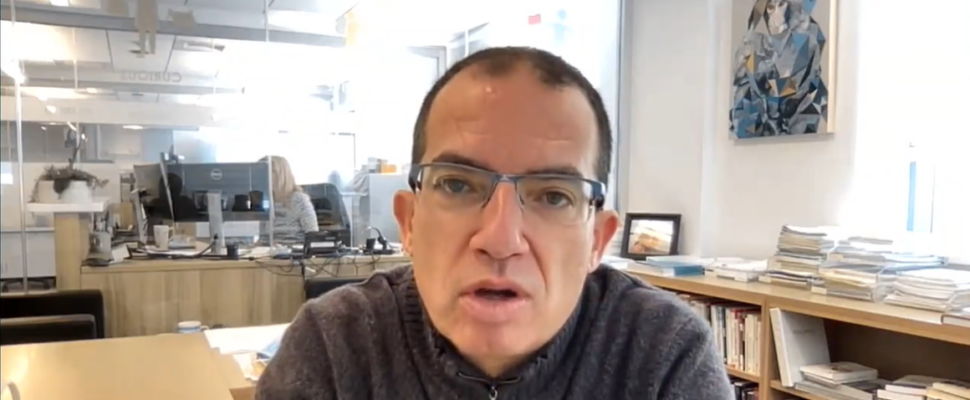The day the Biden administration announced its support for the waiver of IP rights for COVID-19 vaccines, Moderna’s stock fell six percent; the day after that, another two percent. However, the Massachusetts-based company’s CEO Stephane Bancel remains unconcerned and believes that their successful vaccine is just the beginning of the mRNA era in medicine.
“I understand why people think [the IP waiver] a good idea… [but] this will not help at all and have no impact on stopping the pandemic,” said a bullish Bancel, during a virtual event hosted by the Financial Times last week.
The reason, according to Bancel, is simply that only a handful of actors have the know-how and experience to handle mRNA technology successfully and the process to build up such expertise will take too long. “It will not help get one more vaccine on the market because there is no mRNA industry and [even if others use their technology and the patent] it will take a long time, maybe 2-4 years,” he proclaimed.
Bancel explained that rivals will have to test a potential vaccine, run clinical trials – which took Moderna almost a year –, get approval, and scale up manufacturing. “I do not worry, I read the news last night and did not lose one minute of sleep. There is no mRNA industry. The patent is on our website; this is not easy or fast.”
I understand why people think [the IP waiver] a good idea… [but] this will not help at all and have no impact on stopping the pandemic
Stephane Bancel, Moderna
Yet, the mRNA industry has been slowly developing for almost ten years. The same year Stéphane Bancel was hired as CEO, in 2011, companies such as Acuitas Therapeutics, a Vancouver-based company that provided crucial technology for the Pfizer-BioNTech vaccine, was already working on the technology.
“[In 2011] we undertook research internally to demonstrate the feasibility of this approach, and we also began talking with companies that, at that point, were just beginning to look at the potential of mRNA as a therapeutic,” Acuitas CEO, Thomas D. Madden, told PharmaBoardroom.
Other competitors in the modified RNA include CureVac, BioNTech, Translate Bio and Arcturus Therapeutics.
While Moderna’s Bancel dismissed the advantages of the IP waiver, he explained that something that would help the global shortage of vaccines was maximizing the doses the company can ship this year, adding more capacity to reach a production of three billion doses in 2022.
However, the CEO also opened up the possibility of an industry that could last for many years as the virus unlikely to be fully eradicated any time soon, which is why Moderna is working on multi-variant specific booster shots for a COVID-19. That long-term business opportunity would create possible competition down the line if the IP waiver were enacted.
The start of the mRNA era
“We can keep adapting the vaccine. Our contracts are open ended so [buyers] can decide what mix makes sense for their country,” Bancel told the FT.
The “cool thing”, as Bancel says, is that mRNA is an information molecule, not a drug but a set of instructions that tell the body which protein to make: “Just as software is made of two numbers, life is made of four letters. What we code in the message already exists in nature.”
Bancel feels that this contrasts starkly with the approach of the “traditional pharmaceutical industry” and is the reason why 99 percent of clinical trials fail; because their drugs “do not exist in nature.”
The big question going forward for many is if the technology will work as well for other viruses or even other diseases, a bold promise made by the company since the beginning, one that helped it go from a valuation of zero in 2010 to almost five billion dollars in 2016.
“Most vaccines will have very high efficacy with mRNA technology, in the 95 percent range. The key question is how well the virus is understood by scientists and how complex a virus is,” explained the French executive.
The company is currently working on its own HIV vaccine, a quest that has taken the world over 40 years. “We think we might have a chance to get a [HIV] vaccine with mRNA but it is difficult to say because the virus evolves so quickly. I believe it will work for the Flu and Zika viruses with high efficacy,” he said.
But Moderna’s primary focus has not always been vaccines, it has been working on experiments using mRNA technology for rare diseases and even cancer treatments that would work in combination with commercial immuno-oncology drugs.
For Bancel, the future looks bright: “We want to use this technology on things that will have a big impact.”



